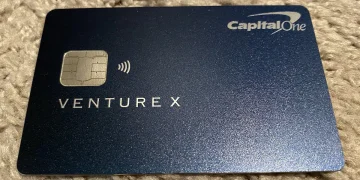
How Diversity and Inclusion Affect Career Opportunities in Finance
The finance industry is increasingly recognizing the importance of diversity and inclusion, enhancing career opportunities for underrepresented groups. Firms with diverse teams benefit from improved financial performance, innovative solutions, and stronger client relationships, while fostering equitable workplace cultures that attract top talent and support professional growth.

The Influence of Soft Skills on Professional Success in Finance
In the finance industry, mastering soft skills like communication, teamwork, problem-solving, and emotional intelligence is crucial for professional success. These interpersonal abilities enhance client relationships, foster trust, and drive career advancement, ultimately contributing to a thriving organizational culture and improved financial performance.

How Financial Certifications Can Increase Your Earning Potential
Financial certifications enhance earning potential by providing specialized knowledge and skills. Certified professionals often see significant salary increases, better job security, and access to exclusive career opportunities. These credentials not only elevate marketability but also foster valuable networking connections crucial for long-term success in the finance industry.

The Impact of Financial Education on Career Advancement
Financial education is crucial for career advancement, equipping professionals with essential skills for decision-making, negotiation, and strategic planning. It fosters leadership potential, enhances networking opportunities, and promotes financial accountability within organizations, ultimately driving personal growth and organizational success in today's competitive job market.

How to Apply for Capital One Venture X Credit Card Step-by-Step Guide
The Capital One Venture X credit card offers unlimited 2x miles on all purchases, with enhanced miles on travel bookings, a lucrative welcome bonus, $300 annual travel credit, Priority Pass lounge access, no foreign transaction fees, and comprehensive travel insurance, making it ideal for frequent travelers.

How to Align Investments with Your Personal Values (e.g., ESG)
This article explores how to align investments with personal values through Environmental, Social, and Governance (ESG) criteria. It highlights strategies for identifying core values, selecting ESG-focused investment vehicles, and engaging in shareholder advocacy, empowering individuals to create a financial portfolio that promotes sustainability and ethical practices.

How to Invest Safely in Times of Economic Uncertainty
Investing wisely during economic uncertainty is crucial for protecting and growing your wealth. Key strategies include diversification, focusing on defensive stocks, creating an emergency fund, and exploring bonds. Staying informed and making proactive adjustments to your portfolio will help navigate market volatility effectively, ensuring long-term financial stability.

How to Apply for the Firstcard Secured Credit Builder Card Easily
The Firstcard Secured Credit Builder Card helps you boost your credit score with on-time payments and features low fees and flexible credit limits for personalized spending. Benefit from transparent terms and enhanced security, supporting effective financial management and peace of mind.

Portfolio Rebalancing Strategies Explained Step by Step
This article emphasizes the importance of portfolio rebalancing to maintain risk levels and align investments with financial goals. It outlines effective strategies, including time-based and threshold-based approaches, and provides a step-by-step guide for implementation, promoting systematic monitoring and adjustments to optimize investment outcomes.

How to Invest with Your Children’s Education in Mind
Investing for your child's education requires strategic planning, early savings, and an understanding of costs. Explore options like 529 plans and Coverdell accounts, set clear financial goals, and evaluate your budget to maximize potential growth. Smart planning today can pave the way for educational success tomorrow.